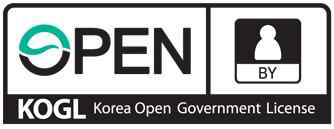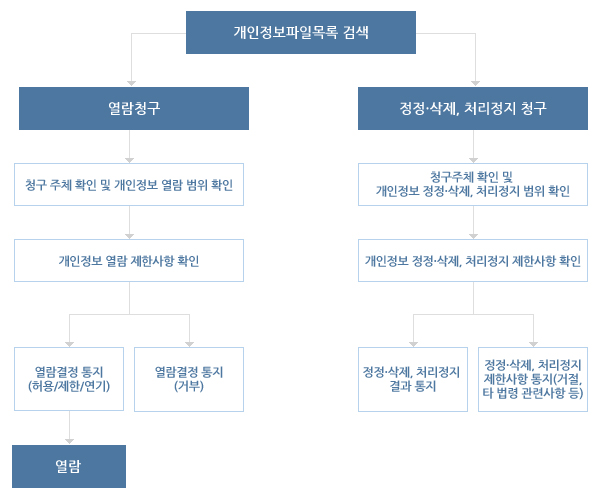Video Subtitles
Promotional Video for the 21st National Assembly
The National Assembly of the Republic of Korea, representing the Korean people, is the forum for the exchange of public opinion, whose members work on behalf of the people. Let’s learn about the main activities of the National Assembly.
The National Assembly’s primary responsibility is legislation. The legislative process begins with the proposal of a bill. It is then examined by the relevant committee and undergoes further review of its legality and wording by the Legislation and Judiciary Committee. Bill resolution at a plenary session completes the process.
Any National Assembly member may propose a bill with the support of at least 10 members. After a bill is motioned or submitted, it is referred to the relevant standing committee, which examines its validity and necessity and, after general discussion, an article-by-article examination, and arguments for and against the bill, the committee takes a vote. After the general discussion is closed, the Standing Committee returns it to the competent sub-committee and requires it to examine it and report on it.
Next, the Legislation and Judiciary Committee examines the bill’s legality and wording before bringing it to the Plenary for a final decision. Following passage, bills are transmitted to the government for promulgation.
The Assembly’s second main duty is deliberating on budget bills and accounts settlement to control the administration’s fiscal operations. Budget bills submitted by the government are approved through deliberation and decision by the National Assembly and implemented by the relevant government ministries. The government must submit its accounts settlement for the previous fiscal year, after being audited by the Board of Audit and Inspection, to the National Assembly by May 31st and must submit its budget proposal for the following fiscal year by September 3rd of each year.
Each committee must complete budget bill examination by no later than November 30th each year. Unless there is a separate agreement between the National Assembly Speaker and the President of Parliamentary Groups, budget bills are automatically submitted to the plenary on December 1st. Through its implementation of the confirmed budget, the National Assembly fulfills its obligation to ensure the efficient and rational allocation of state finances and the application of fairness and transparency.
The Assembly’s third duty is the inspection and investigation of state administration, whose purpose is to keep the administration in check and ensure that government’s activities conform to the Constitution and laws for prudent policy decisions. In this role, the National Assembly satisfies the people’s right to know and promotes the public benefits of administration.
Agencies subject to parliamentary inspection include state agencies; the Special Metropolitan City, the Metropolitan Cities, and Provinces among local government bodies; public institutions; and institutions audited by the Board of Audit and Inspection.
The parliamentary inspection is conducted annually, with each agency’s reports subjected to inspection, questioning, examination, explanation, and testimony. Inspections can be carried out on-site and hearings can be held if necessary.
If any unlawful or unreasonable matters are found over the course of an inspection, the National Assembly has the right to order the government or relevant agencies to take corrective action.
Unlike an inspection, a parliamentary investigation is performed on specific issues of national administration through a relevant standing committee or special committee, at the request of at least one-fourth of the National Assembly’s membership. The period of investigation is decided at a plenary session.
The National Assembly’s fourth duty is holding confirmation hearings before the appointment of high-level officials of the executive and judiciary. Through confirmation hearings, the National Assembly can monitor the president’s authority over personnel affairs and the composition of the judiciary, therefore satisfying the people’s right to know by publicly disclosing the appointment process of high-level officials.
Who would be subject to a personnel hearing?
Personnel hearings fall into two categories – one by the Special Committee on Personnel Hearing and the other by the relevant standing committees. Those held by the Special Committee on Personnel Hearing examine the approval bills for the appointment of 23 high-ranking officials, including the Chief Justice of the Supreme Court and the Prime Minister, whose appointment requires National Assembly approval under the Constitution. Meanwhile, standing committees examine bills to approve the appointment of candidates for 42 positions that include the three justices of the Constitutional Court and members of the State Council, who are appointed by the President.
The National Assembly’s fifth responsibility is parliamentary diplomacy which aims to promote Korea to the world and help secure its national interests.
The National Assembly engages in three types of diplomatic activities:
First, it extends official invitations, to visit Korea, to members of parliament and their staff from foreign countries, in order to promote understanding and enhance Korea’s image in fields such as politics, culture, and economic affairs.
Second, National Assembly delegations may visit other countries to expand the base for inter-parliamentary friendship and cooperation and to resolve relevant issues of concern.
Third, the National Assembly dispatches delegations to international conferences and hosts inter-parliamentary meetings, to represent the nation’s interests and foster international support for Korea’s foreign policy, including advancing peace on the Korean Peninsula.
Also within the National Assembly are various legislative support bodies that support the authority and function of the National Assembly, as defined in the Constitution and related laws, in a professional and efficient manner befitting the public’s expectations.
The National Assembly Secretariat assists with the general parliamentary activities of Members and handles the legislature’s administrative needs, which range from supporting effective operation of meetings, to assisting with deliberation on legislative bills, the budget, accounts settlement, and inspection and investigation of state administration, to providing support for parliamentary diplomacy, handling of petitions, and promoting the National Assembly’s activities.
To support the shaping of new legislative ideas and steady need for information, the National Assembly Library serves as a “digital legislative advisor,” by providing a database of information on pending issues and legislation to facilitate parliamentary activities, along with customized legislative information, by leveraging advanced information and communications technology.
The National Assembly Budget Office supports the legislature’s function of keeping the administration in check and monitoring its management of public finances. It also conducts research, analysis, and appraisal of matters relating to the state’s budget settlement and operation of funds and other finances, and estimates the cost of implementing bills based on principles of professionalism, impartiality, and objectivity. In addition, it analyzes and forecasts macroeconomic trends, analyzes and evaluates major national projects, and performs mid- to long-term financial analyses.
The National Assembly Research Service supports legislative investigations that require a direct response to Members’ inquiries and legislative activities, by publishing reports and holding seminars, while also helping the public conveniently access legislative information. The Research Service enables the National Assembly to fulfill its role as a representative body of the people and contribute to a mature democracy.
The National Assembly enriches people’s lives and gives wings to their hopes.
As a symbol of democracy in Korea, the National Assembly reminds us that the people are the masters of their country.
Working for the people, around the clock, we look forward to witnessing the impressive performance of its newly elected Members.


